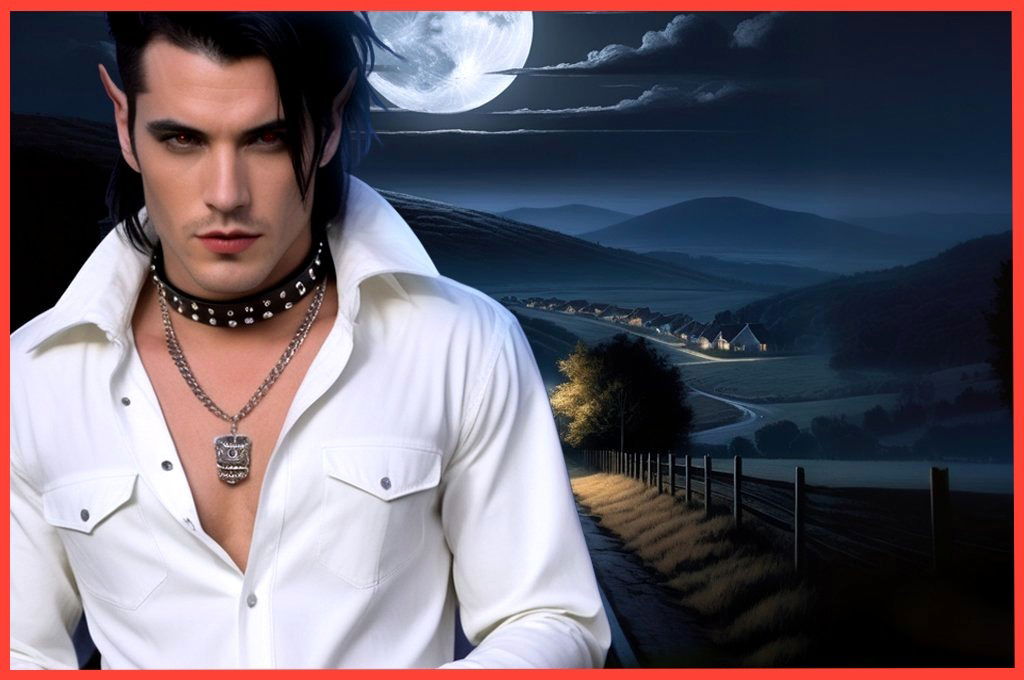GANGREL

Savages Unbound
As rogues and wanderers, the Gangrel have always placed themselves apart from other Kindred. The Outlanders have no need for the petty Jyhads and useless sniping of the undead - they are vampires, the highest order of beasts! Now, Clan Gangrel prowls the night unfettered by the traditions of the crumbling Camarilla. They have finally called the night their own. -- Clanbook: Gangrel - Revised Edition
CLAN OVERVIEW
A glint of red eyes in the darkness, the scent of a predator’s musk, a flash of fangs, the sound of flesh tearing: These mark the presence of the Gangrel. More than any other Clan, the Gangrel resemble the beasts associated with the legends of vampires: bats, wolves, and other creatures of darkness. Indeed, the Outlanders may develop the ability to transform themselves into these and other, more primal forms.
The Gangrel have other characteristics in common with animals as well. Many shun the elaborate social constructs of both Kindred and kin. A number of them prefer to move alone or as a member of small packs or coteries. Most are tough and, when pressed, ferocious. And when Gangrel succumb to the depredations of the Beast, they are left with some feature redolent of the animal kingdom. As a Clan, the Gangrel are wary and aloof. Most would prefer to spend their nights stalking prey or wilding on the rooftops than minding Princely edicts or lobbying for recognition of domain. Theirs is a tense relationship with vampire society, and Outlanders are among the most frequent to turn Anarch or Autarkis. In some localities, the Gangrel have collectively abandoned membership in any Sect — insofar as the Gangrel truly ever do anything collectively.
The Camarilla
Gangrel in cities and princely fiefs across the globe have declared their intention to remain Camarilla members. Most Gangrel have chosen to stay because they have contacts within the sect, or because they have made promises of service to uphold. These reasons are usually respected by their clanmates; loyalty and honesty are greatly prized among the Gangrel. They have firmly ascertained in these modern times that the Camrilla is their best option to protect their territorial interests and ensure the herd of humanity remains an ignorant and plentiful food source.
Gangrel Sects/Sub Classes - City and Traditional
The Gangrel, taken as a clan, are a contradiction. This is to be expected, as a stereotype cannot by its very purpose describe diversity. The stereotypical Gangrel is sullen, uncommunicative, ill-mannered and prone to spend great stretches of time alone in the wilderness. This is the differentiating hallmark of a Traditional Gangrel and the stereotype is not false. At the same time there are Gangrel who are boisterous and well-spoken that stalk the night. These have become known as City Gangrel. (More information on the sub classes can be accessed at the bottom of this page.)
CLAN GANGREL
Quote: This is not a place for you, and it is too late to turn back. Run, little man.

Nickname: Outlanders
Sect: The Gangrel at least nominally belong to the Camarilla, but the Clan has always had a vocal faction that spurns membership in any Sect. However in modern times, they have found the Camarilla has evolved into a haven they can support. While they rarely see eye-to-eye with the other clans, they feel the Camarilla has come to respect the Gangrel and what they offer in protecting the Masquerade. After all, the Gangrel have always understood the concept of Strength in Numbers.
- Sub Clans: Gangrels fall into one of two categories: City Gangrel and Traditional Gangral. For more information on these two sub sects, see the links on the bottom of this page.
Haven: Gangrel often lair where they can, taking refuge when the sun threatens to rise. Those who do maintain permanent havens often lean toward the utilitarian: Everything from a cave to a covered alley to an illegal squat may serve as a Gangrel haven, usually with little demarcating them as any sort of personal territory (until it’s too late for the unfortunate interloper). Many Gangrel make their havens in the teeming warrens of the big city, and some spend their days slumbering in pastural farmlands.
Appearance: Personal presentation is often not high on the list of many Gangrel priorities, and a Gangrel’s appearance is often more a matter of circumstance than it is of active decision. The Clan’s weakness can contribute a great deal to heir appearance, as does an extended unlife in the places where they make their havens, which are frequently short of modern conveniences.
Clan Color: Dark Brown and Black
Background: The Earth is a vast place, and the Gangrel can be found all over it in the strangest nooks and crannies. The Gangrel of North America have had a rocky relationship in the past with the Camarilla, making their relatively recent reintroduction still a somewhat shaky accord.
Unlike the sneers it draws from most Kindred, suburbia was tailor-made for Gangrel. God bless William Levitt, for he gave unto us the suburb. Quiet wooded areas and abandoned parks make for great hunting grounds where Garou are less likely to be encountered.
Every Gangrel knows the best tactics for dealing with others of her kind in the very pit of her soul — respect and defer to the strong. A childe too young and too human to instinctively grasp this basic concept has it beaten into him. Contrary to popular opinion, not all meetings between Gangrel entail flying fur. The Gangrel are very aware of their position in the power structure, and adept at sizing up the physical capabilities of new arrivals. Not surprisingly, this basic approach to social navigation does not work well when applied to vampires of other clans. First, it offends them, and second, it does not take into account the levels of deceit and intrigue of which they are capable.
Character Creation: Sufficiency is the Gangrel hallmark, and many have outsider or loner personality archetypes. Physical Attributes are far and away most frequent, as are Talents with a smattering of Skills and Knowledges. Many Gangrel focus on Disciplines rather than Backgrounds, preferring to rely on themselves more than others. Gangrel almost never have significant Resources, Influence, or Retainers.
Clan Disciplines: Animalism, Fortitude or Celerity, Protean
Weaknesses: Every time a Gangrel frenzies, s/he/they acquires a temporary animal characteristic (which may replace an existing temporary one). A patch of fur, a brief torpor after feeding, pointed ears, eyes that reflect red at night, or skittishness around crowds — any of these and more may mar an Outlander after frenzy. Characteristics acquired in Gangrel frenzies need not only be physical – they can be behavioral as well. Players should work with the Storyteller to determine what new animal trait is acquired (whether the frenzy involved the fight-or-flight impulse may be relevant). Over time, or in an exceptional situation, a particular animal feature may become permanent, with the next frenzy adding a new feature. A good guideline is to require each frenzy-gained trait to have some effect grounded in system terms (such as the temporary reduction of Willpower dots or a permanent loss of fluent speech), though some Storytellers may allow narrative-only traits that can shape the story.
Organization: Regional groups of Gangrel occasionally assemble in convocations that draw from ethnic or cultural influences. These are informal affairs, geared more toward sharing information and revelry than advancing any cogent agenda. Aside from these infrequent gatherings, almost all Gangrel organization is very local where it exists at all, from pairs of sire-and childe through terrifying packs centered around one accomplished Outlander.
Embrace: Gangrel sire childer like they seek prey: after long hunts during which the prospective childe doesn’t even know she’s being followed. Creating a fledgling means sharing limited resources, so each sire-childe relationship is unique and significant. Outlanders Embrace because they choose an individual, not out of whim or recklessness. Those who earn their attention are hardy, whether physically or emotionally.
The Gangrel are a wide-ranging clan, spread across the world in defiance of, or blissful ignorance of, mortal and Kindred boundaries. The one thing clan members most often share is the method of their Embrace. Gangrel neonates are frequently abandoned moments after their first draught of vitae, left without assistance or comfort to cope with the terrible changes Caine’s curse wreaks on body and spirit.
A childe who survives this harrowing episode and takes on her new existence is considered worthy. Sires reclaim these childer, who are taught the Gangrel ways and treated with the respect due to bearers of proud blood. Those who do not survive are forgotten. Those driven insane by the experience are hunted down by their sires and destroyed. This is how the Gangrel have chosen their progeny since the earliest nights, and the reasons are clear. Only the strongest, the fittest, survive to be called Gangrel.
As always, exceptions to the practice arise. While this method serves them well in the wild, City Gangral risk a breach of the Masquerade in leaving their childer to fend for their own in crowded streets where video cameras catch even the most insignificant of activities. Childer of City Gangral are supervised much more closely.
Like both City Gangral and Traditional Gangral, childer whose skills or resources are considered too precious to risk losing, or a sire’s love interest, may be tutored through the Embrace and carefully managed at every pitfall. Gangrel legends highlight common fates of such “soft” sires and their nurtured issue. The son of a chieftain, chosen for his remarkable martial prowess, falls prey to a creeping insanity and slays his sire and the rest of his brood. The delicate youngest daughter of a minor lord, brought into the night by a smitten suitor, leads the knights of the Inquisition to her sire’s door in her naiveté.
The harshness of the Gangrel’s tradition is intended to break these inferior specimens quickly and cleanly, for the good of the Kindred themselves. The Gangrel sometimes scorn clan members known to have been Embraced without the common trial of isolation. Sires who provide such an easy out for their childer are sometimes treated similarly. Subsequently, they spend lavish amounts of time and care on selecting childer.

